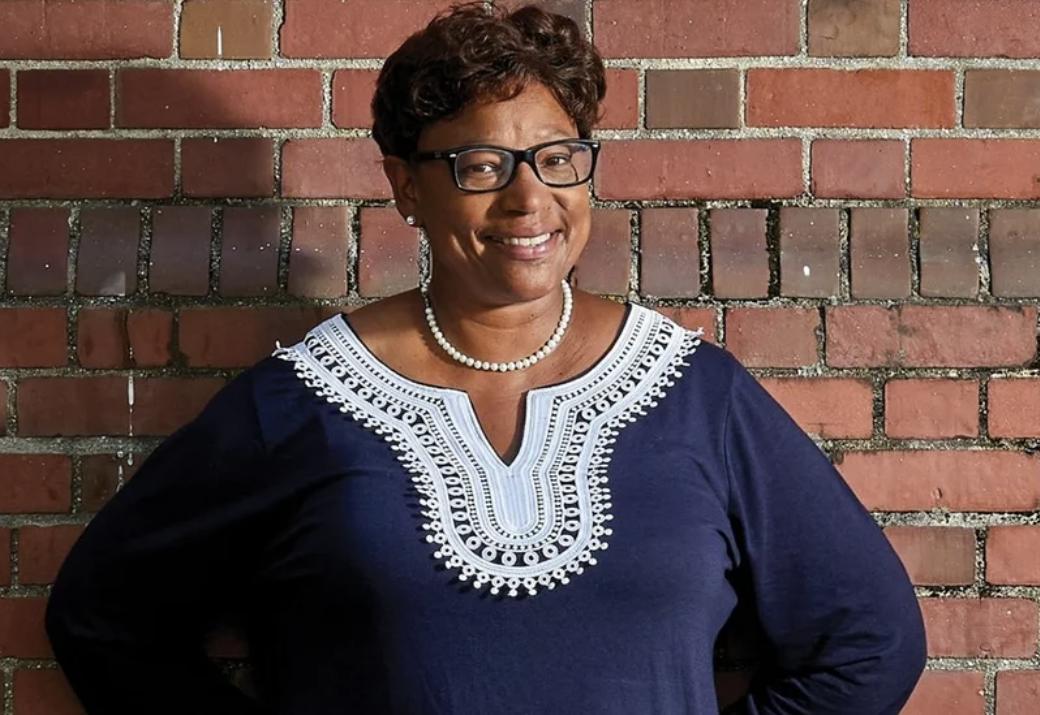Judge Melissa DuBose, the first woman of color and openly LGBTQIA+ person to be appointed in the United States District Court in Rhode Island, shared her experiences of “living her truth” at the University of Rhode Island on Saturday.
DuBose was the keynote speaker at the University’s Women of Color Conference, as part of the Dr. Rose Butler Browne Leadership and Mentoring Program, according to Rhody Today . The annual conference recognizes the legacy of alumna Browne, the first black woman to earn a doctorate in education from Harvard University.
Both Browne and DuBose, in addition to making milestones for women of color, viewed education as an outlet for change.
DuBose began her speech with a description of where she grew up in Providence, mentioning the diversity and beauty of her neighborhood. Then, she spoke about the Rhode Island blizzard of 1978, which was the worst snowstorm in the state’s history, according to the Providence Journal .
Articles recounting the blizzard only showed white children playing in the snow, DuBose said. She said she remembers “building tunnels” and “frolicking around,” yet the media coverage erased that experience.
In order to stand up against forces that dim black voices, DuBose urged students in the room to recognize that they are not alone.
“You claim your stories,” DuBose said. “It makes sure that your vision and your version of whatever you’re going through is also represented.”
DuBose never planned to be a jurist, she said. After graduating from Providence College with a degree in political science, DuBose obtained a teaching certificate and began teaching in Providence Public Schools.
“Everything was going along just great” at her first full-time teaching position at a public charter school until a tragedy occurred, she said.
One of her favorite students — president of the student council, an artist and a dancer — committed “one of the most horrific, senseless murders of another student,” DuBose said.
Her students began asking questions about the situation: ‘Why did he do it?’ ‘What is going to happen to him?’ ‘What is going to happen to the families?’
“Want[ing] answers” for her students, DuBose began her law degree at Roger Williams University, graduating in 2004. Teaching full-time and taking night classes, her position as a teacher was what got her through school, she said.
DuBose’s first job after law school was as a criminal prosecutor, which she saw as an outlet for justice.
“You have the discretion not to prosecute,” DuBose said. “You have the discretion to look at the victim and complaining witnesses and make sure that they’re being heard and they’re being represented in the courtroom.”
From 2005 to 2006, DuBose was a senior legal counsel at Schneider Electric, an article by the Vetting Room said. She is now a member of the Committee on Racial and Ethnic Fairness in the Courts.
“My life is disparate and weird but makes so much sense to me now,” DuBose said. “[Even] when those pivots made no sense at the time.”
Sponsored by the Women’s Center and the Center for Leadership Development, the event was a celebration for women of color. It held panel discussions in addition to DuBose’s keynote speech.
The unfortunate piece about choosing speakers was that she could have chosen anybody: from a female doctor to speak on a woman’s right to choose to a judge making history, Ana Barazza, the Women’s Center director and event coordinator, said.
“There are just so many women’s issues that are being stripped away,” Barazza said.
Barazza intended for the event to act as a bridge between what students are currently learning in the classroom and what they will learn in the future, she said. The event’s panel discussions expanded on topics such as building communities, finding mentors and navigating demanding schedules.
By exposing students to success stories of black women in the fields of medicine, law, media and business, Barazza said she hoped to make students think to themselves: “I can make it out there [in the world].”
As the first woman of color and openly LGBTQIA+ person to be a federal district court judge, DuBose’s story was meant to provide students with the knowledge that anyone can leave a legacy, Barazza said.
In bringing to light the intersection of race and opportunity, Barazza wanted to foster growth and self-determination. Barazza said she hoped to “carve out spaces” for students to make themselves known — and to make themselves heard.
“We are trying to create a space where they may not think space exists,” Barazza said. “We are trying to provide an opportunity for them to engage with people who have forged a way, when there may not have been a way.”
Speaking directly to marginalized students, Barazza said, “We want you here, we need you here.”

